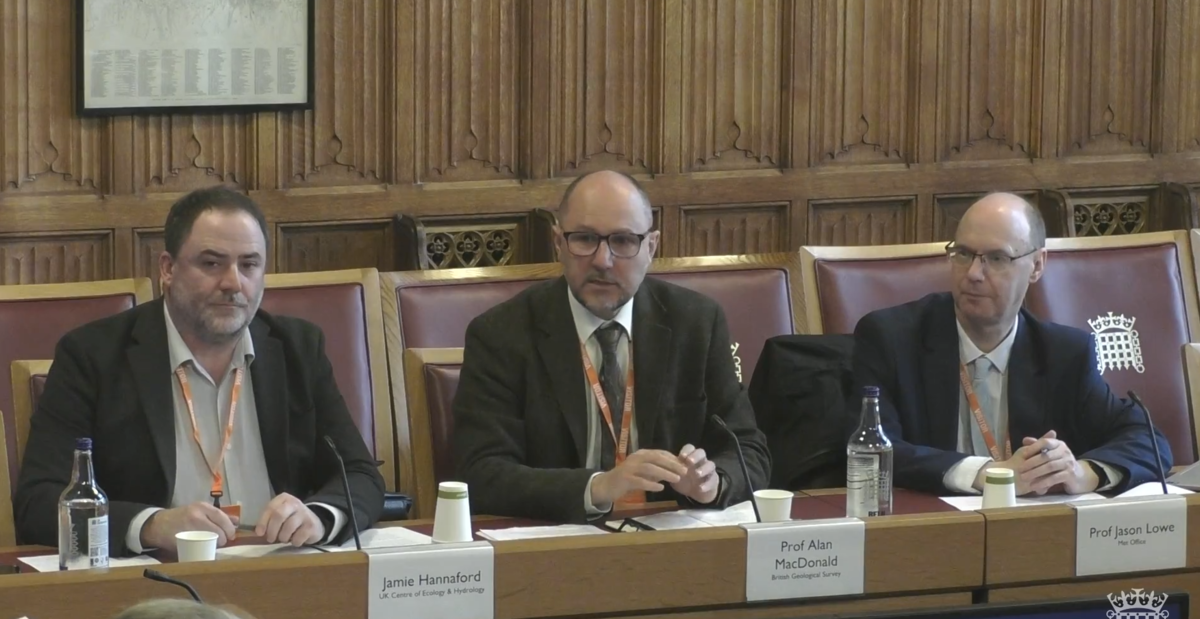CANARI at EGU General Assembly 2024
CANARI researchers will be taking part in the European Geosciences Union General Assembly 2024 (EGU24) from April 15-19 at the Austria Center, Vienna. This year, we have a wide range of talks and posters where our researchers will present on topics from water resources and modelling sea ice variability to ocean currents and rapid Arctic change. CANARI researchers are also involved in several interdisciplinary sessions on early career development and policy engagement. Listed below are some of the CANARI-related sessions over the week. You can follow along with conference proceedings with #EGU24 on Twitter/X.
Monday 15th April
Oral presentations
Hazel Jeffrey (NCAS) and Stefanie Rynders (NOC): Unleashing your potential as an Early-Career researcher: bridging the research-policy divide (GDB7)
- Debate session on how to enable the sustainable engagement of ECRs with the policy landscape. What role can ECRs play in bridging the gap between scientific knowledge and policy implementation?
Tuesday 16th April
Oral presentations
Bentje Brauns (BGS): Spatio-temporal analysis of drought: A multidecadal study of European groundwater systems (HS3.2)
- Results of time series standardization and analysis of groundwater droughts across Europe from 1986-2015 based on over 3000 groundwater level timeseries and providing the first extensive overview of historic groundwater droughts across Europe.
Wednesday 17th April
Poster presentations
David Schroeder (CPOM): Implementation of form drag into the ocean – sea ice model NEMO-SI3, calibration of input parameters with ICESat-2 surface heights and its impact on sea ice and ocean circulation (CR3.2)
- Ocean – sea ice simulations reveal that the inclusion of form drag has a significant impact by reducing sea ice drift and near surface ocean currents by more than 20% in the marginal sea ice regions.
Amulya Chevuturi (UKCEH): Mapping UK Drought Teleconnections from Ocean to Land (HS2.4.2)
- Understanding the North Atlantic oceanic drivers responsible for drought events in the UK, subsequently tracing the teleconnection pathways that connect these drivers to meteorological and hydrological droughts within the region.
Splinter meetings
Tom Bracegirdle (BAS): Challenges in evaluating and interpreting large ensembles over polar regions (SPM103)
- Large ensembles (LEs) are important for assessing the role of internal climate variability. This splinter meeting will provide discuss opportunities and challenges in using LEs to study polar climate change and identify strategies for future LE designs. This meeting is part of the European Climate Research Alliance (ECRA) Polar Collaborative Programme.
Thursday 18th April
Oral presentations
Wilson Chan (UKCEH): Emerging river flow and hydrological drought trends in Great Britain (HS2.4.3)
- Estimating the effects of internal climate variability on hydrological extremes in Great Britian and the possible time of emergence of a climate change signal for UK river flows and hydrological droughts using a single model initial condition large ensemble (SMILE).
Poster presentations
Hazel Jeffrey (NCAS): #ClimateResearchNet – a collaboration of climate communicators (EOS1.1)
- There is often a gap before published research results reach the policy universe. The #ClimateResearchNet aims to give climate research communication a push so that its results are shared faster, more efficiently and more broadly.
Friday 19th April
Oral presentations
Emma Boland (BAS): Surface Controls of Freshwater Export through Denmark Strait (OS1.1)
- Denmark Strait is a key route for the export of freshwater from the Arctic. We present results of an adjoint modelling study, which uses the ECCOv4 ocean state estimate to produce a reconstruction of the freshwater transport at Denmark Strait from 1992 to 2017
Chris Wilson (NOC): Rapid change in the Arctic – North Atlantic climate: using a dynamical systems framework to explore local stability, observability and teleconnections (OS1.1).
- To examine the variability of the full state of the Arctic-North Atlantic and to identify rapid changes, we build a Reduced Order Model, using the Arctic Subpolar Gyre sTate Estimate (ASTE), spanning 2002-2017. This data-driven approach should capture sudden changes originating from any dynamical process or spatial region.
Xiaoyan Wei (NOC): Variability in the Arctic Ocean currents during 1990-2100 (OS1.1)
- The Arctic Ocean is changing rapidly due to climate change, with significant impacts on subpolar ocean dynamics and mid-latitude regional weather We will demonstrate differences in the Arctic Ocean currents among the past, the present, and the future, and explore the implications of these changes for the mass transport pathways.


